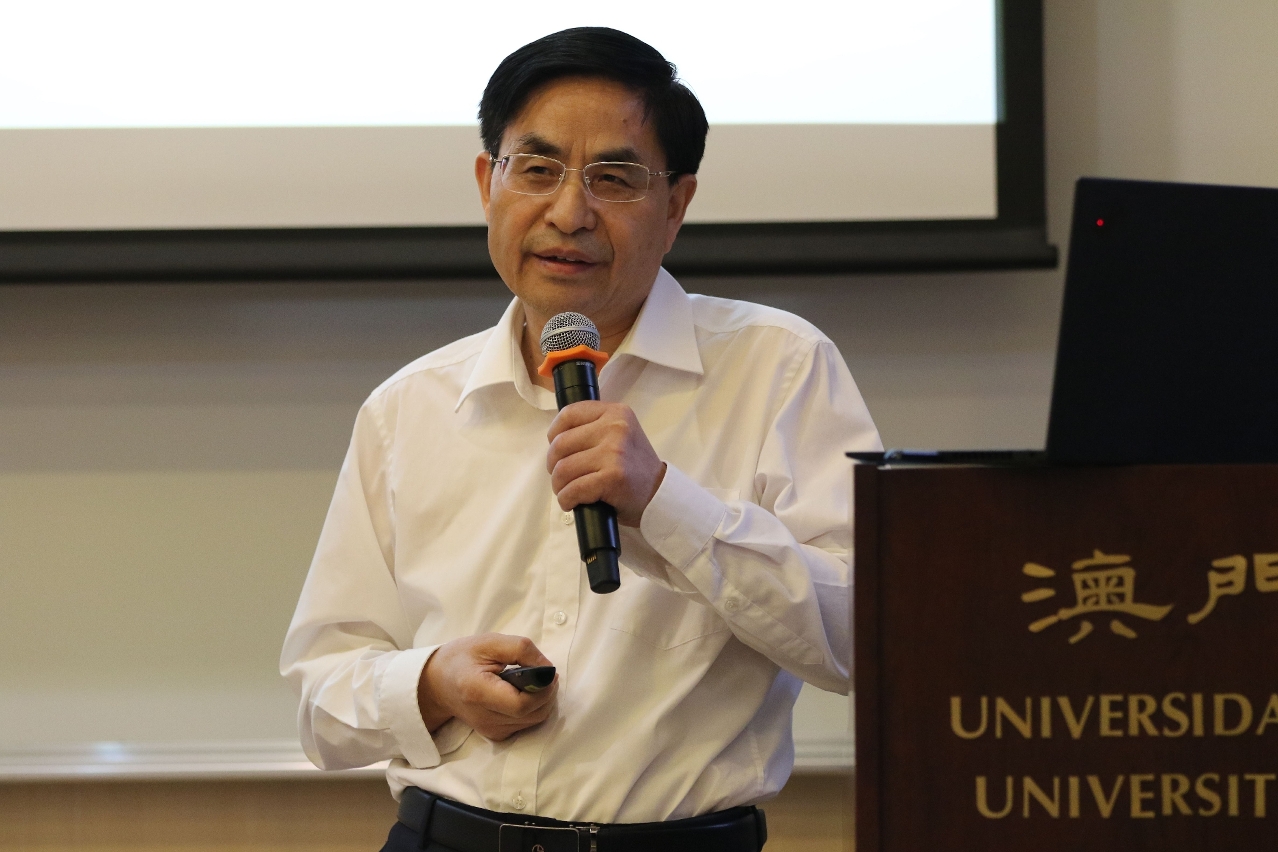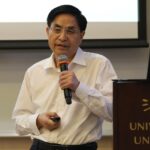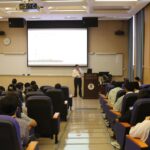 Tian Qibo
Tian Qibo
The Faculty of Arts and Humanities (FAH) of the University of Macau (UM) held the Macao Humanities Forum. The event featured Tian Qibo, executive dean of the Jao Tsung-I Institute of Culture Studies at Shenzhen University and chief expert of major projects of the National Social Science Foundation of China, as the speaker. Prof Tian delivered a lecture titled ‘The Inheritance and Development of Traditional Chinese Culture’. The lecture attracted many on-site and online participants, including faculty members and students of UM.
At the forum, Joaquim Kuong, assistant dean of FAH, highlighted the significant role of Macao as an ‘exchange and cooperation base with Chinese culture as its mainstream and coexistence of different cultures’. He emphasised the city’s crucial role in promoting and transmitting cultures, as well as integrating Chinese and Western values. Additionally, Prof Kuong briefly introduced the close connection between UM and Prof Jao Tsung-I, a master in the study of Chinese culture, as well as FAH’s contribution to the development of Chinese literature and history studies in Macao. He also introduced Prof Tian’s academic accomplishments in the fields of ecological philosophy and political philosophy.
During the lecture, Prof Tian first provided an overview of the values, humanistic spirit, and moral norms inherent in traditional Chinese culture, before discussing how these values, such as the belief ‘Tian-Ren-He-Yi’, prioritise responsibility over freedom, obligations over rights, community over individuals, and harmony over conflict. By comparing traditional culture with modern values, Prof Tian highlighted their differences and the limitations of traditional Chinese values. He also cited examples to illustrate the minimal attention given to individual rights in traditional values. In addition, Prof Tian discussed topics such as the cult of power, the rule of law, and scientific and rational thinking. Towards the end of the talk, Prof Tian discussed the modern and contemporary changes in traditional Chinese culture both within China and abroad by dividing the period from the second half of the 19th century to the present into four stages. He emphasised the importance of promoting the modern civilisation of the Chinese nation through a forward-looking approach, integrity, and innovation.
During the Q&A session, Prof Tian engaged in in-depth discussions with UM students, faculty, and online participants, bringing the forum to a successful conclusion. This was the second lecture of the Macao Humanities Forum for the 2023/2024 academic year. The forum, which is held every academic year, aims to provide a platform for world-renowned scholars in different fields of the humanities to share their latest research findings with local teachers and students. The themes of the previous editions have covered a wide range of fields, including literature, linguistics, history, translation, and arts.



